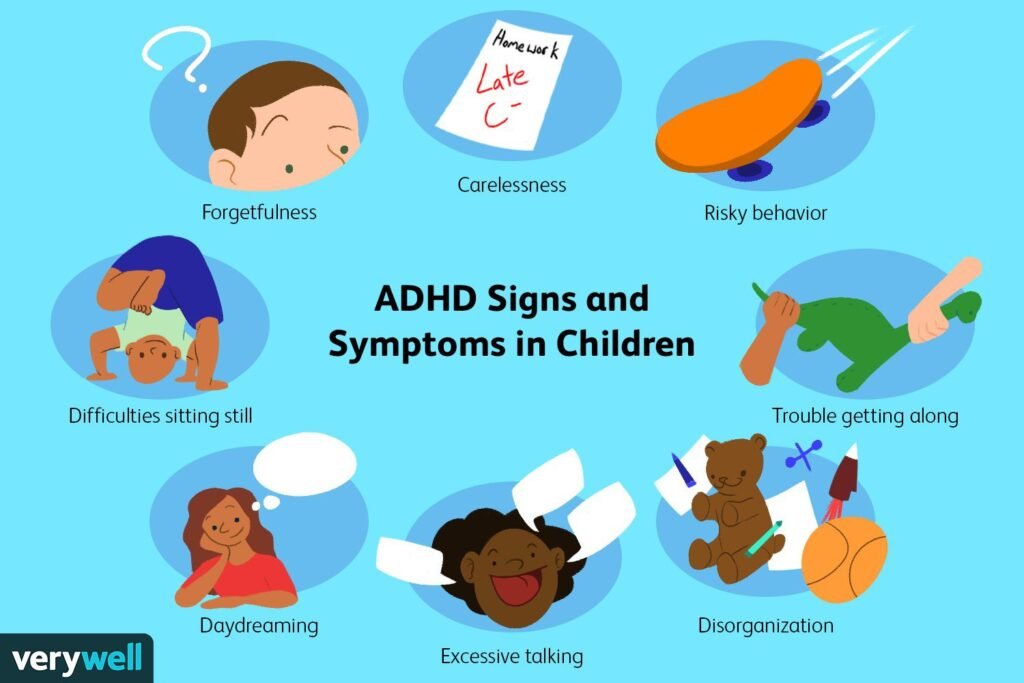Expatriate (expat) families are becoming increasingly common in our globalized world, where job opportunities and lifestyle changes frequently lead families to relocate to foreign countries. While this lifestyle offers numerous benefits, including exposure to diverse cultures and languages, it can also present unique challenges, particularly for children. One such concern is the potential for Attention Deficit Hyperactivity Disorder (ADHD) to develop or be exacerbated in expat children ( commonly known as TCK’s) due to various environmental, social, and psychological factors.
Understanding ADHD
ADHD is a neurodevelopmental disorder characterized by symptoms of inattention, hyperactivity, and impulsivity that are inappropriate for a child’s developmental level. While the exact cause of ADHD is not fully understood, it is believed to result from a combination of genetic, environmental, and neurological factors.
The Expat Lifestyle and ADHD Risk Factors
For Third Culture Children (TCK’s) who have enjoyed the beauty of expat life, the risk of developing ADHD or having existing symptoms exacerbated can be influenced by several aspects of their lifestyle:
1. Frequent Relocation: Moving frequently can disrupt a child’s sense of stability and routine, which are crucial for managing ADHD symptoms. Constantly changing schools, homes, and social environments can lead to increased anxiety and stress, which may exacerbate ADHD symptoms or contribute to their development.
2. Cultural Differences and Social Isolation: Expat children often face cultural differences that can make it difficult to integrate socially. Language barriers, different educational systems, and varying societal norms can contribute to feelings of isolation and frustration, which are known to worsen ADHD symptoms.
3. Parental Stress: The stress of adjusting to a new country can impact not just the parents but also the children. Parental stress, whether due to work demands, cultural adjustments, or social isolation, can affect parenting styles, potentially leading to inconsistent discipline and structure—factors that can contribute to the onset or worsening of ADHD symptoms in children.
4. Disrupted Educational Continuity: Consistency in education is crucial for children with ADHD. Expat children may experience disrupted educational continuity due to differences in curriculum, teaching methods, and support systems across countries. This lack of consistency can hinder their academic progress and exacerbate symptoms.
5. Environmental Factors: Environmental influences, such as exposure to new allergens, dietary changes, and varying levels of pollution in different countries, may also play a role in the development or exacerbation of ADHD symptoms.

Support and Mitigation Strategies
While the expat lifestyle can present challenges, there are strategies that families can employ to mitigate the potential risks associated with ADHD:
1. Establishing Routines: Creating and maintaining consistent daily routines can provide the stability that children with ADHD need. This includes regular sleep schedules, mealtimes, and study periods, regardless of location.
2. Seeking Professional Support: It’s crucial for parents to seek out professional support early if they notice symptoms of ADHD in their children. This might include consulting with local healthcare providers, schools’ Educational & Diagnostic Testing Center , psychologists, or ADHD specialists who understand the unique challenges faced by expat families.
3. Parental Awareness and Education: Parents should educate themselves about ADHD and the potential impacts of the expat lifestyle. Understanding the signs of ADHD and the stressors that might trigger or worsen symptoms can help in early identification and intervention.
4. Social Support Networks: Building a strong social support network, both within the expat community and with local residents, can help alleviate the feelings of isolation that children might experience. Engaging in social activities, joining clubs, and encouraging children to make friends can be beneficial.
5. Cultural Integration: Encouraging children to embrace and adapt to the local culture while maintaining a connection to their home culture can provide a sense of belonging and reduce stress. This dual identity can help expat children feel more grounded and less overwhelmed by their surroundings.
The expat lifestyle, while offering enriching experiences, can present unique challenges that may increase the risk of ADHD or exacerbate its symptoms in children. By understanding the potential risk factors and employing proactive strategies, parents can help their children navigate the complexities of expatriate life while minimizing the impact on their mental health. It is essential for parents to remain vigilant and seek professional guidance when necessary to ensure that their children thrive, regardless of where they live.
References
1. American Psychiatric Association. (2013). Diagnostic and Statistical Manual of Mental Disorders (5th ed.).
2. Faraone, S. V., & Larsson, H. (2019). Genetics of Attention Deficit Hyperactivity Disorder. Molecular Psychiatry, 24(4), 562–575.
3. Martin, J., Hamshere, M. L., Stergiakouli, E., O’Donovan, M. C., & Thapar, A. (2014). Genetic risk for attention-deficit/hyperactivity disorder contributes to neurodevelopmental traits in the general population. Biological Psychiatry, 76(8), 664-671.
4. Reiss, F., Meyrose, A. K., Otto, C., Lampert, T., Klasen, F., & Ravens-Sieberer, U. (2019). Socioeconomic Status, Stressful Life Situations and Mental Health Problems in Children and Adolescents: Results of the German BELLA Cohort-Study. PLoS ONE, 14(3), e0213700.
5. Taylor, E. (2019). Development of Attention Deficit Hyperactivity Disorder in Children. Journal of Child Psychology and Psychiatry, 50(1-2), 126-132.








